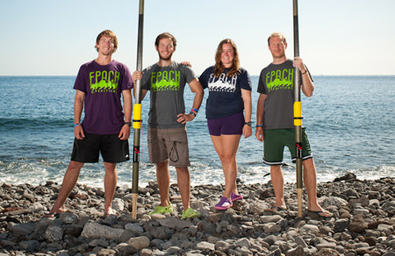|
During our stay in LA, we were given the opportunity through Adventurers and Scientists for Conservation (ASC) to lay the groundwork for an entirely new cycling research program aimed at protecting animals and reducing roadkill. Gregg Treinish, the CEO of ASC, works to get people on expeditions or weekend warriors connected with researchers to aid them in their data collection.
|
Particular to our bike, we are piloting a program for ASC that collects data points on roadkill. The idea behind it being that humans build roads without regard to what natural spaces and animal paths those roads might be cutting through; the results of this division of land has meant millions of animal deaths and millions of dollars in property damage for people and state governments.
Collecting information on dead animals not sounding very glamorous you might say? Well, so far, the research done through Fraser Shilling at UC-Davis’s project has produced very positive results. It’s seen an 80% reduction in roadside animal deaths due to autoaccidents for the animal ”through-passes” that have been created and saved individuals and the State of California thousands of dollars in property damage. In Florida alone, the tortoise crossings have 100% efficacy!
The data collection process is incredibly simple as well. When we see a dead animal we note the mile marker closest to it, what we think the animal is, how long it looks like it’s been dead for and ideally take a picture to make sure it’s the right animal. Fraser then takes this data and delivers it to the policy makers at the state level that can effectively change how/where roads are built and add animal overpasses and through passes to aid them in a safe crossing.
Although it can be tricky to gather every part of this information when you are struggling up a 15% grade in Big Sur, we are working hard to come up with an easy methodology for future cyclists participating in the study.
We will be continuing to partner with ASC on each part of the 400Challenge, as well, collecting water samples and animal trekking to inform scientists on climate change through the kayak and the hike.
What does this mean for the future of Epoch Expeditions? Many of our trek offerings starting in 2013 will be in partnership with ASC so that we can enrichen our experiences on the trail and yours by giving back!

